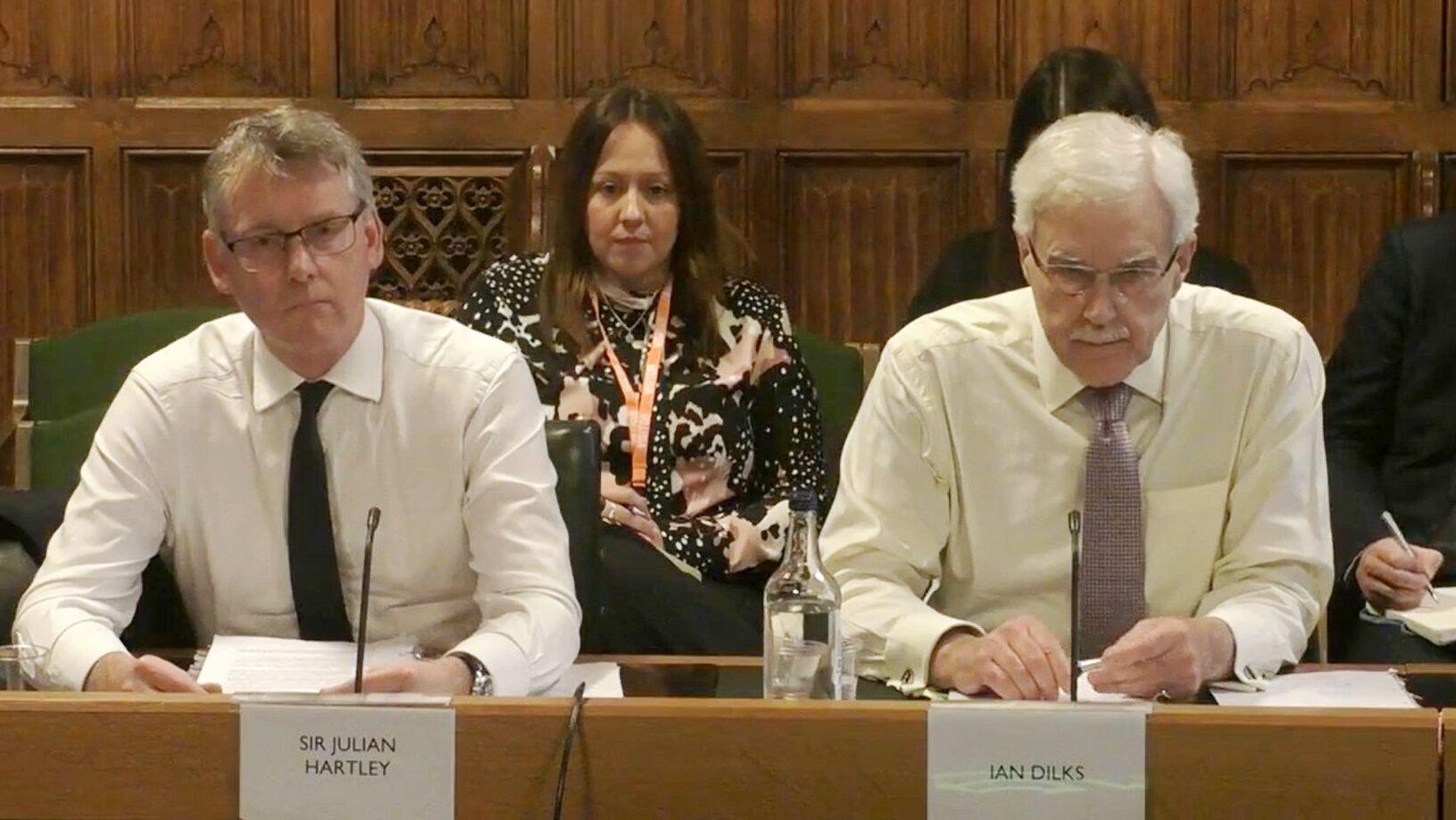Election 2017: a new deal from the new government
Following the inconclusive 2017 general election result, here are MiP’s challenges to the new government – however long it lasts.

During the 2017 election campaign, MiP asked all parties to make four simple commitments to the NHS in
England: to fund the NHS and social care properly, to switch resources to where they’re most needed, to offer a new deal to the NHS workforce, and to support managers in the NHS. As we enter another period of political turbulence, we need your help to campaign on these priorities – they’re too important to wait for the politicians to sort themselves out.
Proper funding for the NHS
It’s hard to find anyone outside government circles who thinks the NHS has enough money to deliver what we expect from it. Even the government’s Office for Budget Responsibility thinks we’ll inevitably need to spend a bigger slice of GDP on healthcare – and has pencilled that into its long-term projections.
Of course, you know this already. MiP members work up close and personal with the effects of underfunding: longer waiting times, missed targets, a GP service in crisis, and social care and community health services under unsustainable pressure.
Managers know the reality is almost the exact opposite. Public health funding has been slashed, there’s little or no money to invest in integration, and social care services are falling apart. What efficiencies there are come from staff cuts, freezing pay, and squeezing budgets and hospital tariffs.
Managers know that long-term social care is a ticking time-bomb under the whole system. This is so important that last year’s MiP conference overwhelmingly supported any new money going into social care rather than the NHS itself.
But, as Theresa May’s disastrous manifesto proposals showed, it’s a political minefield. We believe the political parties must work together on a long-term plan for social care: if they don’t like so-called “death taxes”, let’s discuss the alternatives, agree a way forward and take action before it’s too late.
As well as this, we’re calling on the new government to close the healthcare funding gap with comparable countries like France and Germany by raising spending from 9.8% to 11% of GDP. If they can afford it, so can we.
Switch resources
The 5YFV built on a powerful consensus among politicians, NHS staff and other experts that we need to switch resources and do things differently. But change is politically tough. People strongly support their local hospital and tend to oppose switching resources towards other services, especially ones that have yet to materialise.
This is why we need an open, transparent conversation with communities and healthcare professionals. It’s wrong for the NHS and local councils to plan in private and then try to steamroller change through without taking local people with them. And we know that staff and local managers need to be meaningfully engaged – nothing will happen without them.
It’s becoming clear that our fragmented and piecemeal approach to improving services isn’t delivering the change we need. Social care is on its knees, spending on public health has been slashed, and mental health is still not getting the priority in local plans that was promised. And we lack a comprehensive workforce strategy to deliver the change we need.
We’re calling on the new government to endorse “triple integration” of acute, community and social care services, and make sure local people have a meaningful say in the plans. We need to Involve staff, including local managers, more systematically and earlier in the process. And we need transformational funding to stabilise the system and run new services alongside old ones for a period of time.
A new deal for our workforce
Pay isn’t everything, but it’s a big something. If you don’t pay people properly for doing difficult jobs, sooner or later they will go off and do something else. When NHS employers, unions, the Institute for Fiscal Studies, Simon Stevens and virtually every independent healthcare expert thinks NHS staff need a pay rise, even the Treasury must see that the game is up.
Many staff already face unacceptable workloads. A quarter experience bullying and harassment, and many more feel pushed around by endless changes about which they’re never consulted. Staff are still highly engaged, but we’re stretching them to the limit.
As unions, it’s our job to MiP at Work: Unions send pay claim straight to Treasuryand better working conditions for NHS staff. But this matters to everyone in this country: the NHS is a people business, and quality of care depends on the skills, performance and engagement of all staff.
We know there’s a direct link between bullying and poor care. We know people work better when they have secure, high-quality jobs, and when they’re involved in decisions that affect them. We know we need flexible employment packages and proper investment in training and skills. We know mistakes are expensive, that we still spend more than £3bn on agency staff, and that the NHS is losing key professional skills – as the recent WannaCry cyber attack brutally demonstrated.
The last government had no plan for any of this. The NHS workforce needs a new deal from the new government. That must include a realistic pay policy to end poverty pay and ensure pay at all levels keeps pace with the rest of the economy. We need a comprehensive workforce strategy, meaningful action to tackle bullying and harassment, and a permanent right to remain for all EU staff working in the NHS.
Supporting NHS managers
Managing in the NHS and social care has never been more demanding than it is now. We’re trying to integrate two complex, fast-developing systems, both under enormous pressure, with dwindling resources and flaky political support.
The new government needs to stop pitting “frontline” doctors and nurses against “back office” management and support staff. Skilled managers matter, just as skilled porters, cleaners, administrators and accountants matter. They’re all integral to the system and they’re just as committed to the NHS as doctors and nurses.
Good planning is vital. Good relationships are vital. We need top-notch information and financial management, and state-of-the-art communications. The superb response of the NHS to the devastating terrorist attack in Manchester was the result of skilled and dedicated clinicians and managers working together across the city’s eight trusts.
Does anyone really think our doctors and nurses need less support than now? According to the OECD, the NHS spends just 2p in the pound on administration, compared to 5p for health services in Germany and 6p in France. Bureaucracy doesn’t come much leaner and cheaper than this.
The new government needs to take NHS management seriously. When we plan new services, cut jobs or merge back office functions, let’s actually assess the impact on patient care. Let’s invest in management skills at all levels. And, as health minister Philip Dunne said, let’s “reset the rhetoric around NHS managers”. Cheap, baseless attacks on NHS managers just drive people away and undermine those who remain – pushing us back to outdated and, sometimes daft, ways of running the NHS.
Have your say: Are these the right campaigning priorities for MiP? Can you help by telling us your personal stories about what’s happening on the ground? Get in touch with us by email: info@miphealth.org.uk or editor@healthcare-manager.co.uk
Related News
-

Regulating the managers: more questions than answers
The Labour government’s plans for regulating NHS managers are still shrouded in mystery, and the three options on the table each have their pros and cons. Rhys McKenzie weighs up the choices and gauges the views of MiP members on the best way forward.
-

The inspector falls: why the CQC needs a fresh start
After years of chaos, the Care Quality Commission urgently needs to rebuild trust and credibility with the public and the services it regulates. What needs to change and what are the priorities for new boss Sir Julian Hartley? Alison Moore reports.
-

Voice, value and vision: what analysts need from the NHS
Data analysts play a vital role in an NHS which is increasingly data-driven and focused on public health trends. But the NHS faces fierce competition for skilled analysts and many feel the health service fails to value them or fully use their talents. Alison Moore reports.